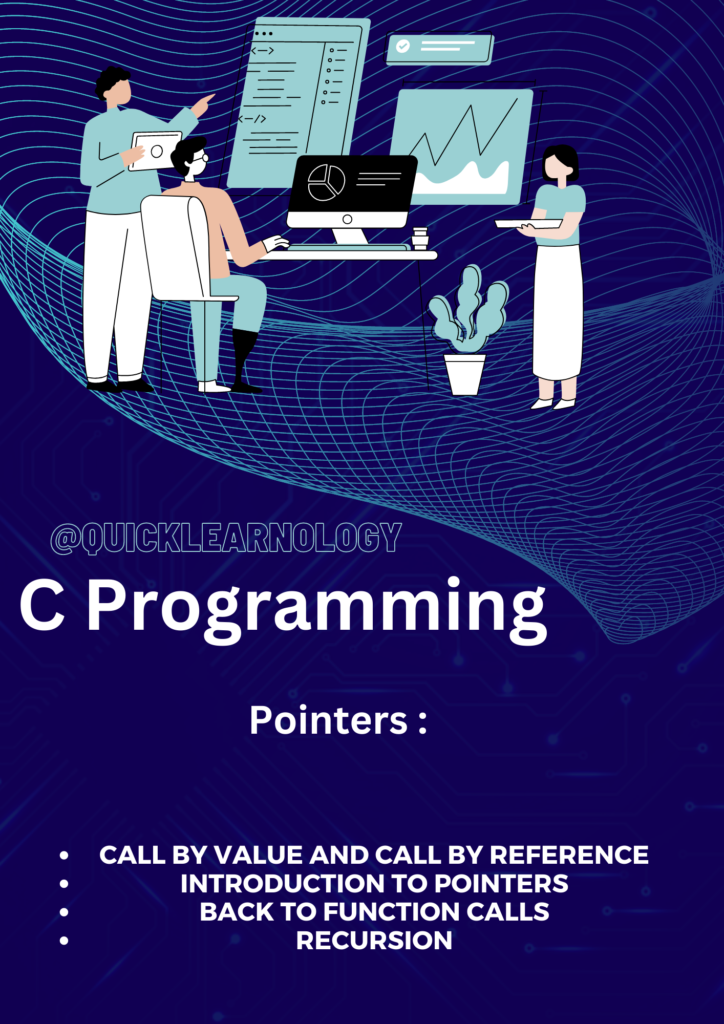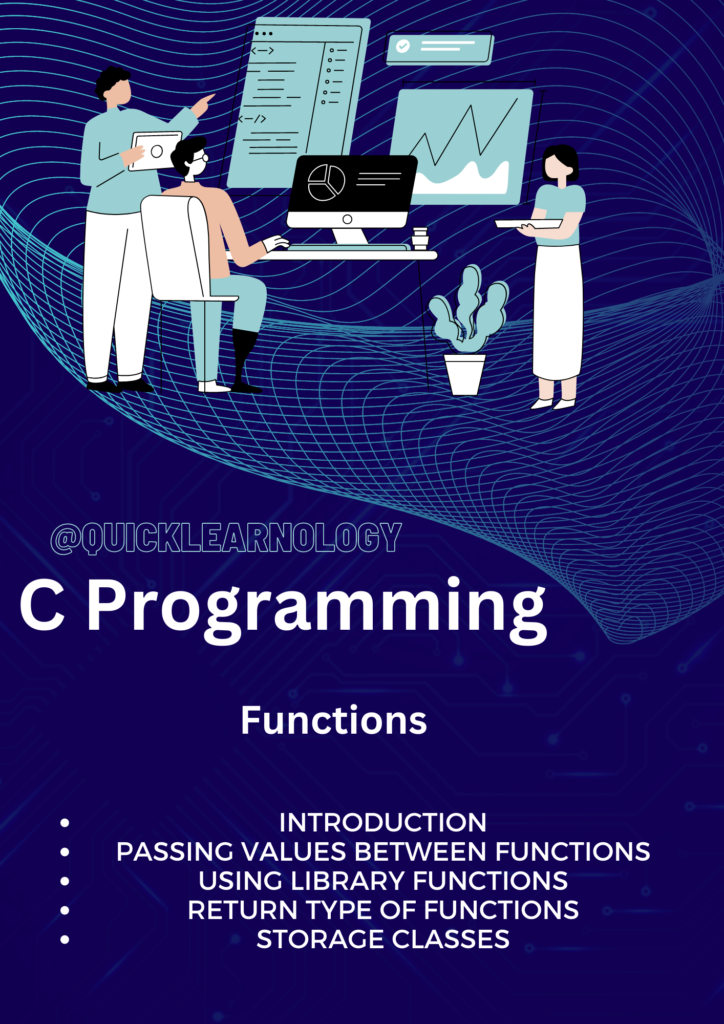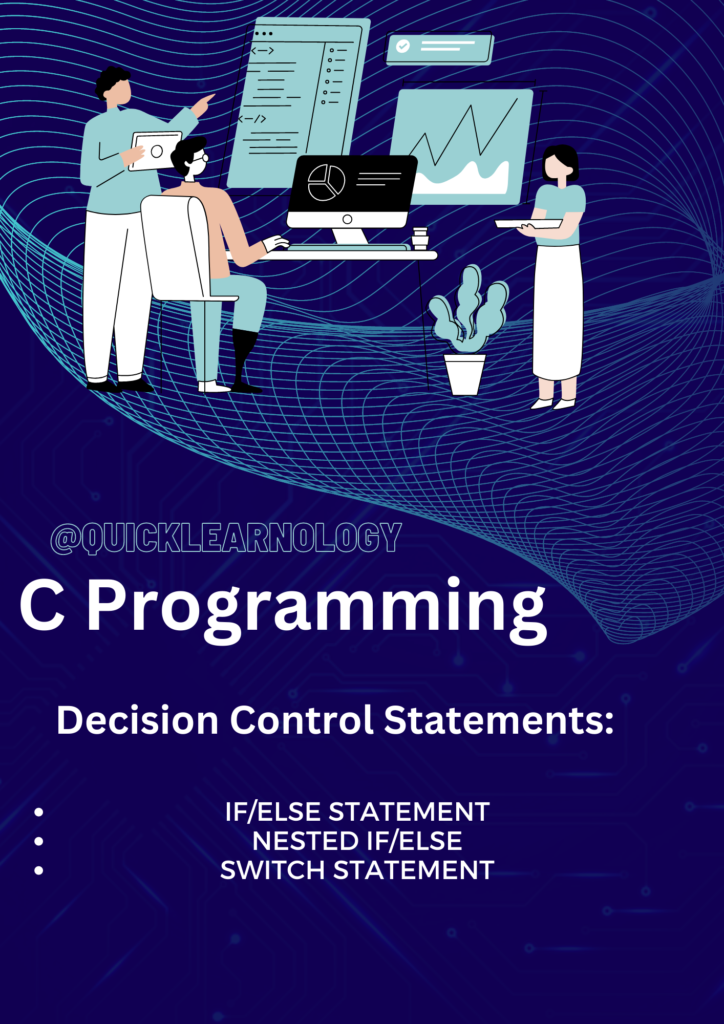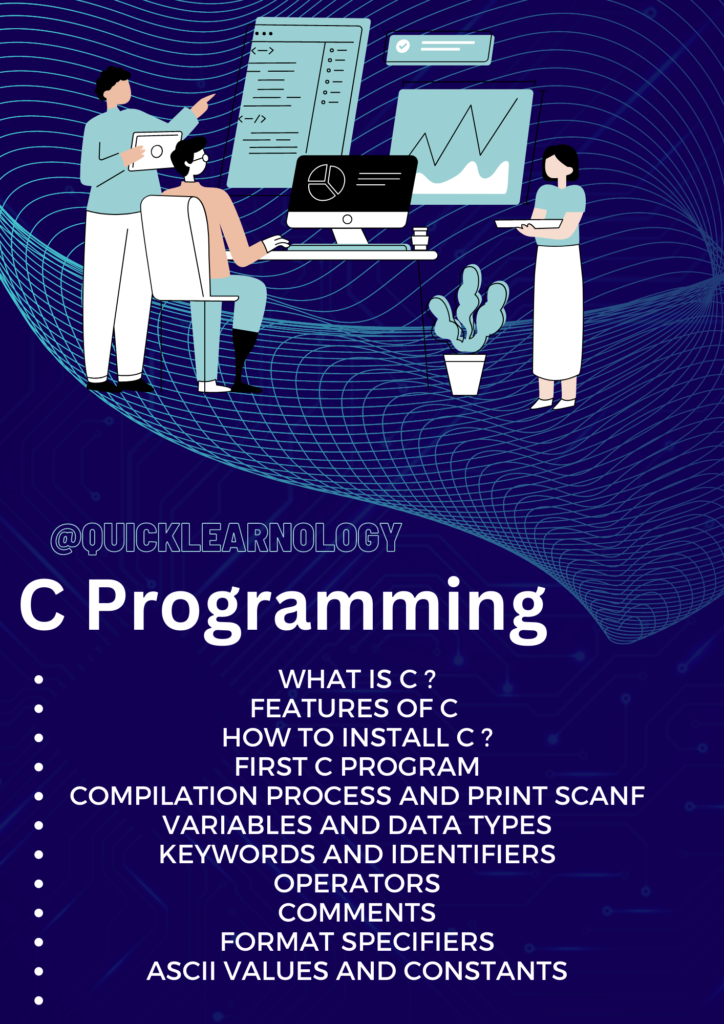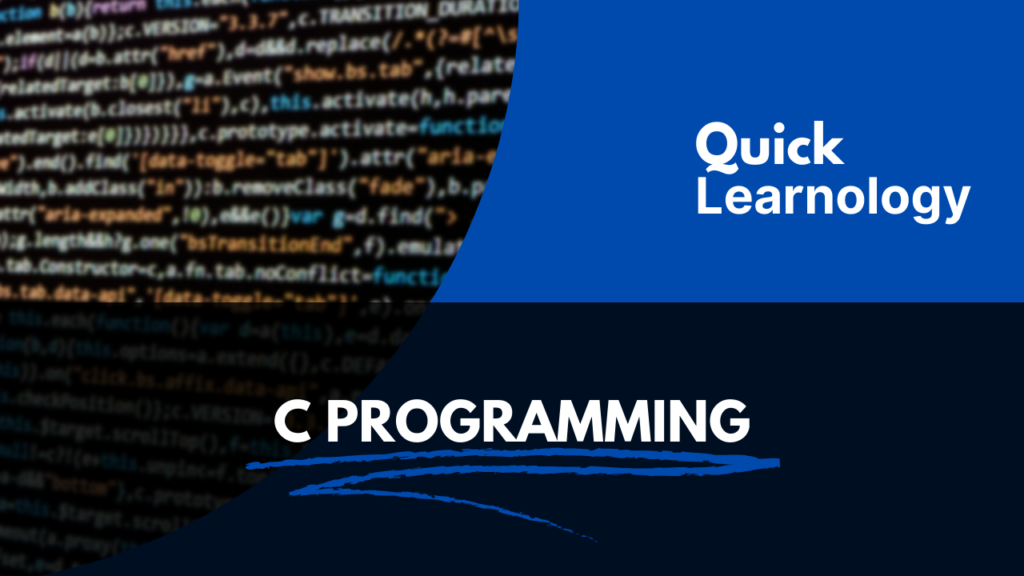Pointers
Introduction to Pointers: A pointer is a variable that stores the memory address of another variable. Pointers allow for dynamic memory allocation, manipulation of data stored in memory, and passing variables to functions by reference. Call by Value and Call by Reference: In C, arguments can be passed to functions using either call by value …

